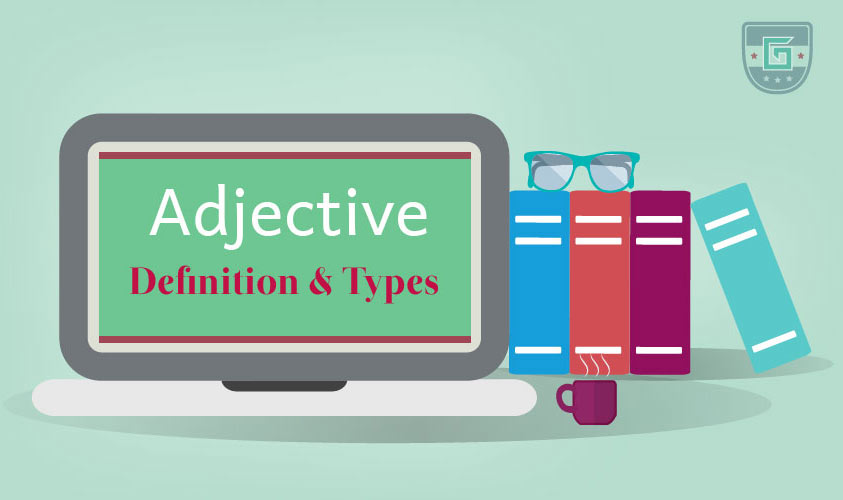
Adjectives Are Information Gatherers
What are adjectives? When it comes to function, adjectives are information gatherers. Specifically, they provide further information about an object's size, shape, age, color, origin or material. Here are some examples of adjectives in action:
It's a big table. (size)
It's a round table. (shape)
It's an old table. (age)
It's a brown table. (color)
It's an English table. (origin)
It's a wooden table. (material)
It's a lovely table. (opinion)
It's a broken table. (observation)
It's a coffee table. (purpose)
Adjectives Answer Questions
Adjectives serve another important role: they answer questions like, "Which one?" "How many?" and "What kind?" You can see how they do this job in the following examples:
Which cat did you see? It was the grey cat.
What kind of potatoes did you buy? I bought red potatoes.
How many cars were in the parking lot? There were few cars.
How many people like ice cream? Most people like ice cream.
Which spoon did you use to stir the soup? I used the wooden spoon.
What kind of coffee do you like? I like black coffee.
Adjectives Use Certain Suffixes
A suffix is the ending portion of a word. They often follow familiar patterns. In general, many English adjectives end with these suffixes:
-able/-ible: adorable, invisible, responsible, uncomfortable
-al: educational, gradual, illegal, nocturnal, viral
-ar: cellular, popular, spectacular, vulgar
-ent: intelligent, potent, silent, violent
-ful: harmful, powerful, tasteful, thoughtful
-ic/-ical: athletic, energetic, magical, scientific
-ine: bovine, canine, equine, feminine, masculine
-ile: agile, docile, fertile, virile
-ive: informative, native, talkative
-less: careless, endless, homeless, timeless
-ous: cautious, dangerous, enormous, malodorous
-some: awesome, handsome, lonesome, wholesome
Adjectives Use Certain Placement in a Sentence
What if you come across a word that doesn't have one of the above suffixes, but you still suspect it's an adjective? You can use sentence placement as a clue.
For instance, some adjectives end in -y, -ary, or -ate (or any other suffix for that matter). These words can be nouns, adverbs, verbs, or adjectives. The key to knowing whether a word is an adjective is to look at where it is and what it's doing in the sentence.
Before a Noun
If it comes immediately before a noun, it's likely an adjective. For example, in "blue plate," "blue" is an adjective describing the noun "plate."
Between an Article and a Noun
If it comes between an article like "the," "an," or "a" and is followed by a noun, it is almost definitely an adjective. For example, in "the grassy field," "grassy" is the adjective describing the noun "field."
Between a Possessive and a Noun
If it comes between a possessive pronoun or noun and another noun, it is almost definitely an adjective. For example, in "his red kite," "red" is an adjective to describe "kite." The same is true for "Sam's red kite."
Between a Demonstrative and a Noun
If a word comes between a demonstrative like "this," "that," "these," or "those" and a noun, it is probably an adjective. For example, in "that immaculate kitchen," "immaculate" is an adjective describing "kitchen."
Between an Amount and a Noun
If a word comes between an amount, including "some," "most," "all," or "a few," and a noun, it is often an adjective. For example, in the phrase "a few ordinary days," "ordinary" is an adjective describing "days."
Adjectives Can Act As Complements
Adjectives can also act as complements. Compliments complete a sentence when the verb is "to be." Not every compliment is an adjective, but some adjectives can be compliments. For example:
She is tall.
He is smart, handsome, and rich.
This tent is malodorous.
A Note on the Order of Adjectives
If you're using adjectives in your writing, the order is important. When you list several adjectives in a row, there's a specific order they need to go in. Native English speakers tend to put them in the correct order naturally, but if you're learning English, you'll have to memorize the order.
It goes like this:
Determiner - An article (a, an, the), a number or amount, a possessive adjective (my, his, her, its, your, our, their), or a demonstrative (this, that, these, those)
Observation/Opinion - Beautiful, expensive, gorgeous, broken, delicious, ugly
Size - Huge, tiny, 4-foot-tall
Shape - Square, circular, oblong
Age - 10-year-old, new, antique
Color - Black, red, blue-green
Origin - Roman, English, Mongolian
Material - Silk, silver, plastic, wooden
Qualifier - A noun or verb acting as an adjective
This is the correct cumulative order for adjectives that come directly before a noun. They are not separated by commas.
My beautiful big circular antique brown English wooden coffee table was broken in the move.
An Important Exception
When an item is defined by its purpose, that word isn't usually an adjective, but it acts as one with the noun in that situation.
Coffee table
Baseball player
30 Positive Adjectives For Describing
People.
https://englishforyoutheteachersvoice.blogspot.com/2020/07/30-positive-adjectives-for-describing.html
60 Negative Adjectives For Describing
People.
https://englishforyoutheteachersvoice.blogspot.com/2020/07/negative-adjectives-for-describing.html













Comments
Post a Comment